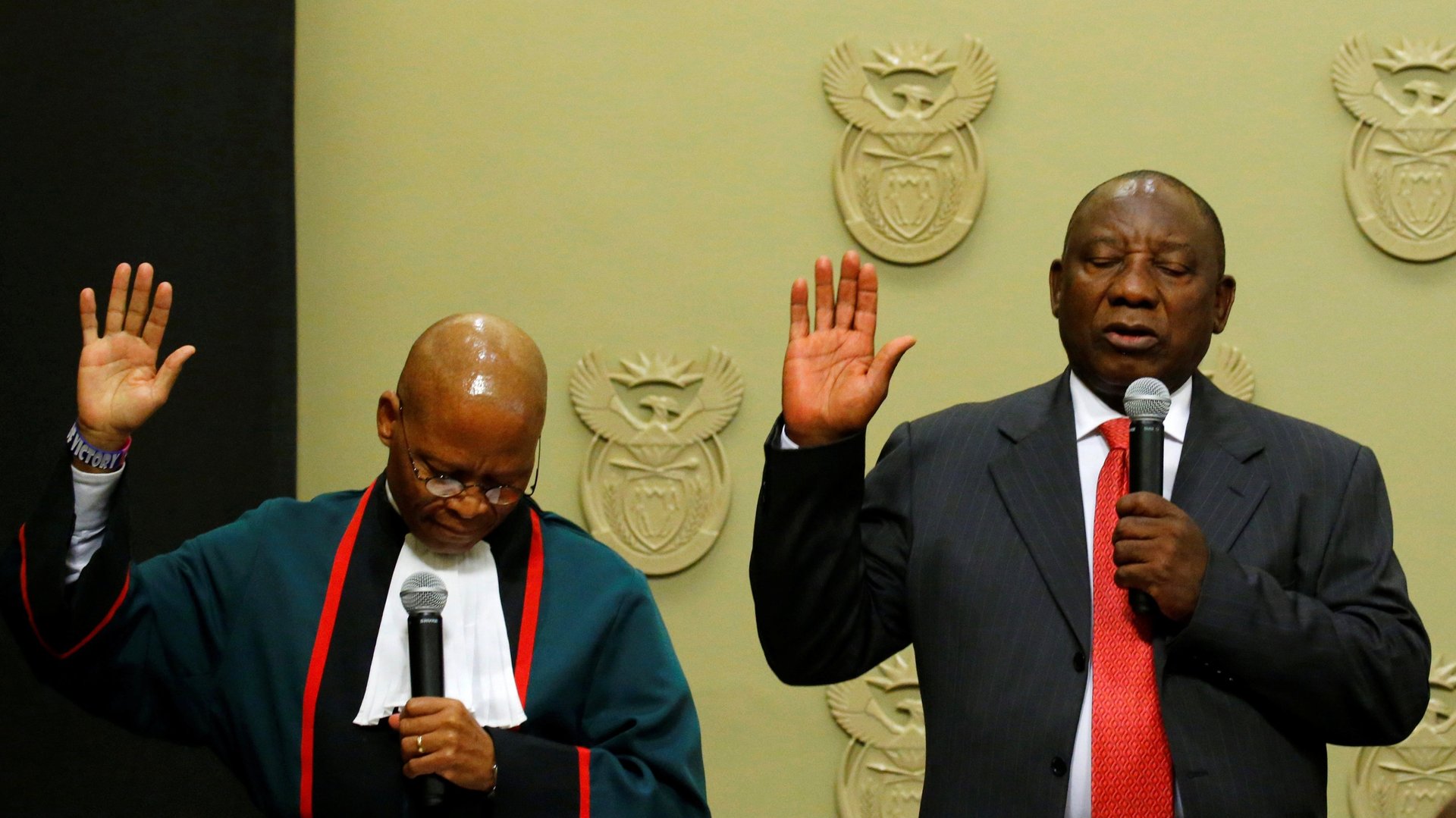Cyril Ramaphosa has been sworn in as South Africa’s fifth president
Cyril Ramaphosa was sworn in as South Africa’s fifth president since the end of apartheid on Feb. 15, just hours after now former president Jacob Zuma’s late night resignation.


Cyril Ramaphosa was sworn in as South Africa’s fifth president since the end of apartheid on Feb. 15, just hours after now former president Jacob Zuma’s late night resignation.
The light mood belied the tense days preceding the short ceremony and the tough task ahead for Ramaphosa to restore local and international investment in South Africa.
Ramaphosa’s ceremony took place in a packed room in parliament and was over in less than five minutes. If he leads the ANC to victory in the 2019 general election, he will have the full pomp and ceremony of the Union Buildings. After the simple ceremony, Ramaphosa will get down to business almost immediately, giving the State of the Nation address on Feb. 16 (after it was postponed ahead of Zuma’s removal).
As the new president, Ramaphosa is determined to get the country back on schedule. The early date for the annual address, which outlines the administration’s plans for the next year, ensure that the budget speech happens on Feb. 21 as planned. When ratings firms downgraded South Africa’s sovereign credit rating, they specifically cited the political instability and policy uncertainty of the Zuma years.
It’s an attempt to restore confidence to South Africans and international observers that Africa’s most advanced economy will get back on track. South Africa’s politically sensitive currency already displayed the markets’ faith in Ramaphosa when it strengthened after his election as African National Congress president in December. When Ramaphosa officially took over as head of state, the rand reached its highest level in three years at 11.59 to $1, settling again at 11.70 to the greenback.
Ramaphosa was formally sworn in after the national assembly elected him unopposed as president a few hours earlier. Ramaphosa’s election by lawmakers was almost without drama, except for a walkout from Julius Malema’s party who called for a snap election, clearly cognizant of the optics of opposing the ruling party ahead of an election. Accustomed to this, Ramaphosa addressed the house for the first time, hardly needing his cue cards.
In a brief statement, he promised to outline his plans to end corruption and create jobs, promising a new era that would put the country first. After nearly a decade under Zuma’s beleaguered presidency, Ramaphosa doesn’t have to do much to lift the mood in South Africa.